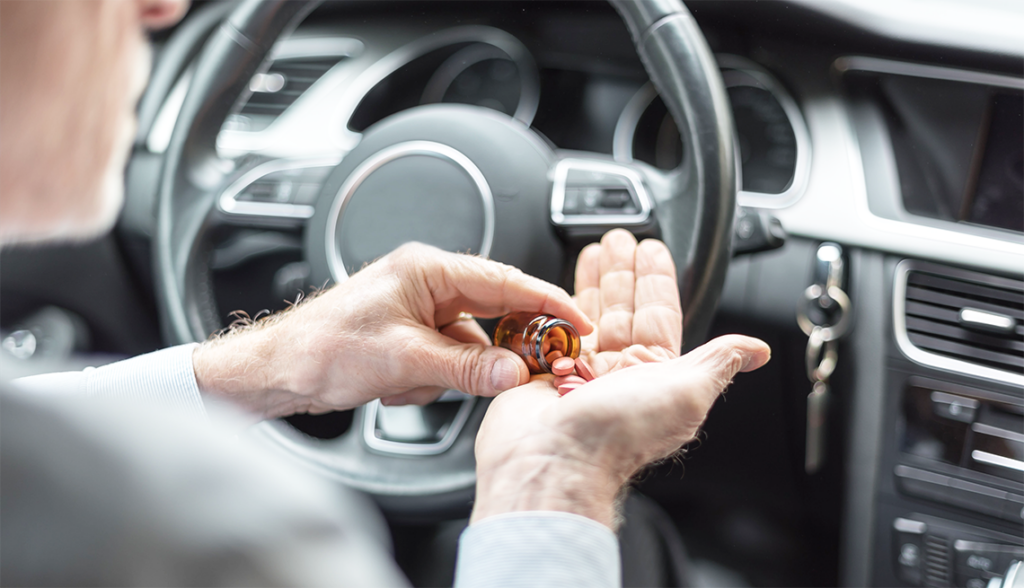7 Medicines That Don’t Mix With Driving

You may be driving under the influence and not even realize it. We aren’t talking about alcohol or illegal drugs; we’re talking about common medicationstaken for everything from the common cold and seasonal allergies to anxiety to temporary aches and chronic pain.
According to the U.S. Food and Drug Administration (FDA), some over-the-counter and prescription meds carry side effects — drowsiness, dizziness, nausea and blurred vision among them — that can make it unsafe to drive.
That’s especially true for people over age 65, “due to changes in the body’s responsiveness to a medication, as well as a decline in the amount [of the drug] the body removes,” says Kimberly Zammit, executive director for Clinical Pharmacy Services at the Mount Sinai Health System. “Medications that produce an intended or unintended alteration in the brain’s process have complex actions, and the response is impacted by multiple factors: age, genetics, interactions with other medications and overall disease burden.”
Research suggests plenty of people of all ages drive after taking “potentially driver-impairing drugs.” A study published in 2022 by the AAA Foundation for Traffic Safety found that around half of the more than 2,600 drivers who responded to a survey reported using one or more such medications in the past 30 days; around 70 percent reported driving within two hours of taking three or more of them.
“With a lot of these drugs, the body gets used to them if you take them for a long period of time — especially prescribed medicines,” says Mohammed Issa, M.D., assistant professor at Harvard Medical School and medical director of the Pain Management Center at Brigham and Women’s Faulkner Hospital. “Usually within a month (of starting them), it’s fine to drive. But the problem is with the over-the-counter drugs you take as needed. The body doesn’t have time to get used to them, so they can affect your response to something happening right in front of you.”
For information on 7 medications that can cause impaired driving, from AARP, CLICK HERE.
